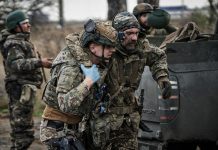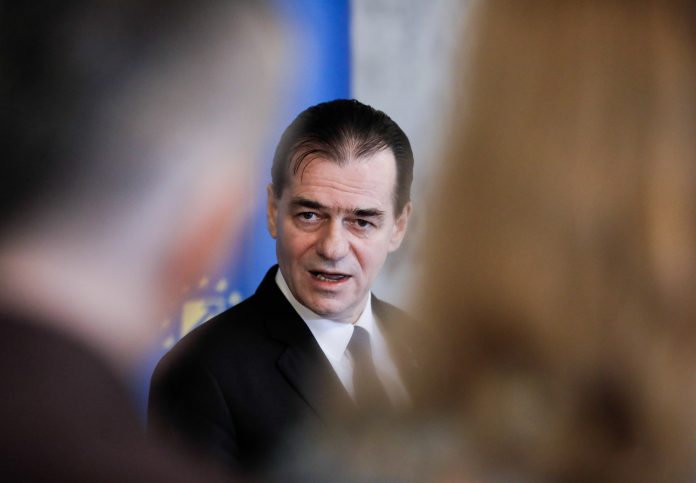Romania’s prime minister says authorities had to contend with the return of almost 1.3 million Romanians after the coronavirus spread through Europe, with many compatriots traveling home from the continent’s worst affected countries.
The large of influx of Romanians put extra pressure on the country which was ill equipped to handle the crisis when it broke out in March, Premier Ludovic Orban said late Monday.
“Romania wasn’t prepared. Many hospitals weren’t prepared to cope with such a challenge,“ he said.
The return of 1.279 million Romanians was an epidemiological and political problem for Orban’s government that was hastily approved by Parliament in a remote vote on March 14 as the pandemic gripped Romania.
“Many (Romanians) came from Italy, France, Spain, Germany and Britain, countries with big outbreaks,” he said. “Romania was exposed to a major risk. We put hundreds of thousands in quarantine. Few countries had the courage to do that” he claimed.
Romania’s virus death toll is the highest in the eastern wing of the European Union. On Monday, it had more than 11,500 confirmed cases on Monday, and 818 deaths.
On top of the challenges faced by one of the most underfunded healthcare systems in the EU, there was the risk that Romanians returning from abroad would potentially infect others.
“The COVID-19 epidemic found us without (medical) supplies,” Orban said. “A huge effort was made, including diplomatically because there was a very big demand and we used all our political and diplomatic resources to obtain contracts,” he said.
Orban said Romania “started from zero” with companies that manufacture medical equipment. It now has 23 companies which are authorized to produce surgical masks. Starting May 15, it will be compulsory to wear surgical masks in enclosed public spaces, such as shops and in public transport.
There are 60 companies authorized to produce hazmat suits and 100 companies authorized to produce biocides, almost enough to cover domestic demand, he said.
Orban’s Liberal government was first elected on November 4, but lost a no-confidence vote in February.
Two days after the government was approved in the remote vote, with Orban himself in self-isolation after a party colleague tested positive for the coronavirus, President Klaus Iohannis declared a state of emergency and imposed a strict lockdown.
But Orban claimed that the government had begun preparing measures to respond to the emerging health crisis after news about the virus outbreak from China.
He said his government had suspended flights, closed schools and taken other unpopular measures which had resulted in less infections.
Romania managed to keep the disease under control, he claimed, by never having more than 260 patients treated in intensive care and by having “hundreds” of deaths compared to “tens of thousands” in Spain, France and Belgium.
“We had to take measures as we went along, to strengthen the institutes fighting COVID-19, to continually perfect ourselves.”
Among the government’s successes he claimed, was its testing capacity which has gone from a few hundred a day to the current level of 11,000 a day and will increase to 15,000.
Orban said the government had taken unpopular measures such as banning the export of medical equipment and gear used to fight COVID-19, and insisted that restrictions on people’s movements and the closure of malls, shops, and parks were taken “with the sole purpose of safeguarding Romanians’ health, to save lives and to reduce the spread of the coronavirus.”
He said the government paid wages to 570,000 furloughed workers after companies were forced to lay off workers or reduce the number of hours they worked. He said 200,000 Romanians and companies had applied for a government scheme offering a deferral until December on bank loans, of which 40,000 applicants had had their requests accepted at the end of April.
“The danger hasn’t passed,” Orban said explaining why restaurants and bars will stay closed after May 15 and trips to the mountain and beach remain banned due to the risk of infection.



















